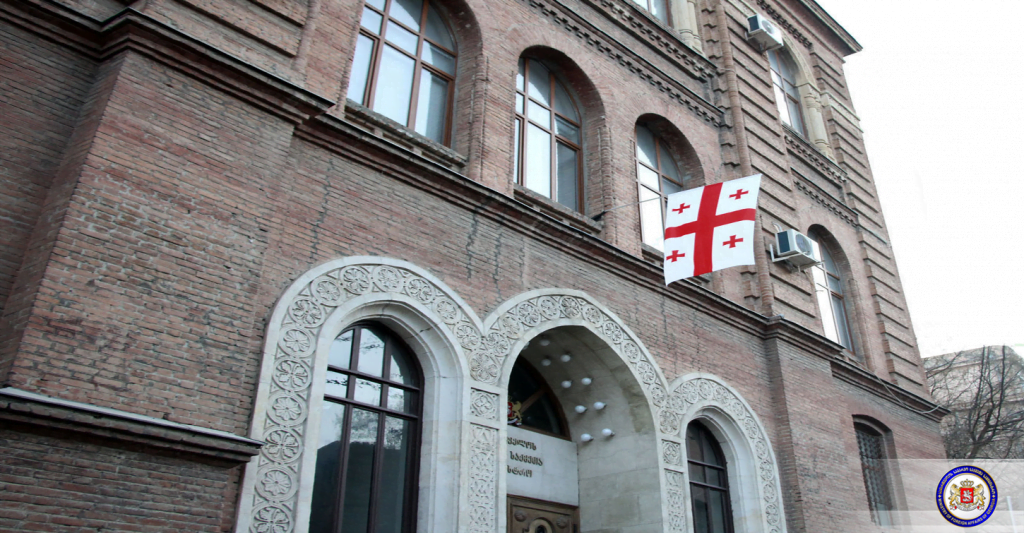The Georgian Foreign Ministry decried today as unacceptable Moscow’s call on the NATO to annul the 2008 Bucharest Summit decision that Georgia and Ukraine will eventually become members of the Alliance.
“In the fundamental interests of European security, it is necessary to formally disavow the 2008 NATO Bucharest Summit decision that ‘Ukraine and Georgia will become NATO members’,” said the Russian Foreign Ministry (MID) on December 10.
Russia’s Pretentions
Moscow’s demands were laid out in a lengthy MID statement, which claimed that 2008 Bucharest Summit pledge by NATO allies contravenes their commitment to the OSCE not to enhance security at the expense of the security of other states, that is, Russia.
The MID said Russia will push for laying out “serious long-term guarantees, excluding any further NATO advance to the east and the deployment of threatening weapons systems in the western borders of Russia.”
“All these years NATO has consistently moved eastward, ignoring the concerns expressed by Moscow,” the MID complained.
The Russian Foreign Ministry claimed that “to reduce tensions in Europe,” NATO would have to respond to their proposals, including on limiting Allied forces’ exercises to an agreed distance from Russia and coordinating on the maximum distance of approach by warships and aircraft in the Baltic and the Black Sea regions.
The MID also insisted on coming up with an agreement the U.S. and other NATO allies not deploying strike weapons systems on the territory of both NATO and non-NATO neighboring states, that “pose a threat to the Russian Federation.”
The statement comes amid Russian military build-up near Ukraine’s borders, as Western leaders, including U.S. President Joe Biden, have warned Moscow of “severe consequences” if it invades Ukraine.
In the Foreign Ministry statement, Moscow instead accused the Western states of “pumping” Ukraine with weapons “whipping up confrontation” with Russia. Moscow claimed relations between the West and Russia “continue t deteriorate and have come to a critical point.”
The Georgian Foreign Ministry Retorts
The Georgian Foreign Ministry stated on December 11 it finds “any statement by a third party on reviewing the Bucharest Summit decision to be unacceptable” and in contravention of international law.
It highlighted that the Bucharest decision was made with consensus between Allied member states, and has been reiterated in every subsequent NATO Summit. It recalled the 2021 Brussels Summit communiqué declaring it unacceptable for any third party to interfere with other countries’ right to decide their foreign policy course.
The Georgian Foreign Ministry stressed that it falls within the country’s “sovereign decision to join NATO, one that is based on the unwavering will of the Georgian population. This aim is also reflected in Georgia’s Constitution.”
In the context of security in Europe, the Ministry highlighted that Russia’s actions remain as its “key challenge,” as demonstrated by “the occupation and annexation of the territories of neighboring sovereign countries, disregard of the fundamental principles of international law and the non-fulfillment of its obligations.”
NATO Chief Responds
In response to the MID statement, NATO Secretary-General Jens Stoltenberg reiterated earlier stance the Alliance “cannot accept that Russia is trying to re-establish a system where big powers like Russia have spheres of influence, where they can control or decide, what other members can do.
“We are going to sit down, talk with Russia, but not compromise on the right of every nation in Europe to decide their own path,” said the NATO chief on December 10 in Brussels during joint press conference with freshly-appointed German Chancellor Olaf Scholz.
“It is a fundamental principle that every nation has the right to choose his own path. This is enshrined in many documents and agreements that Russia has signed too – everything from the Helsinki Final Act in 1975, to the Charter of Paris, to many other accords,” the Secretary-General concluded.
Also Read:
- In OSCE, Georgian FM Slams Moscow’s Aggressive Policy Against Tbilisi, Kyiv
- NATO Says Russia Has No Right to Control Neighbors
This post is also available in: ქართული (Georgian) Русский (Russian)

